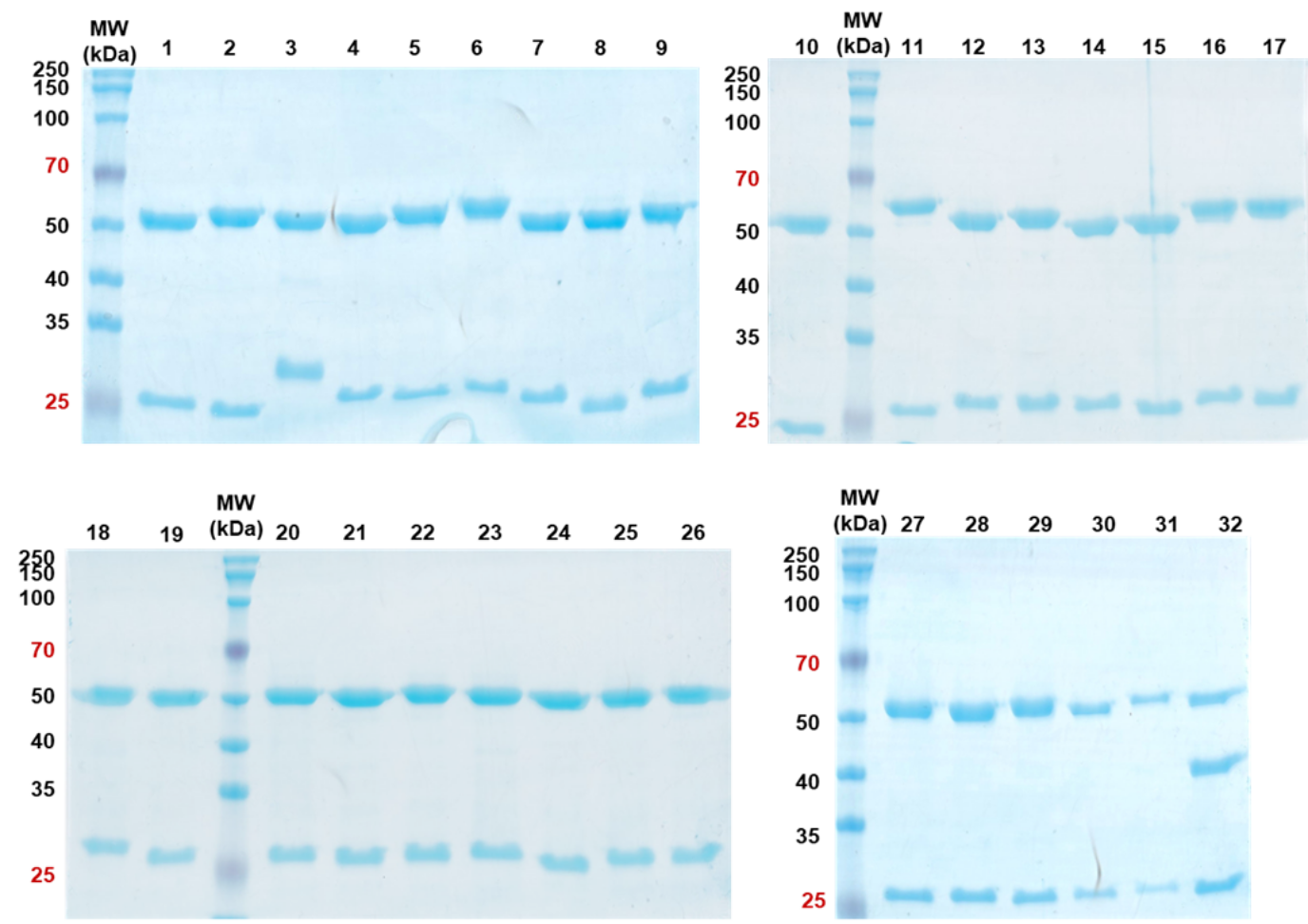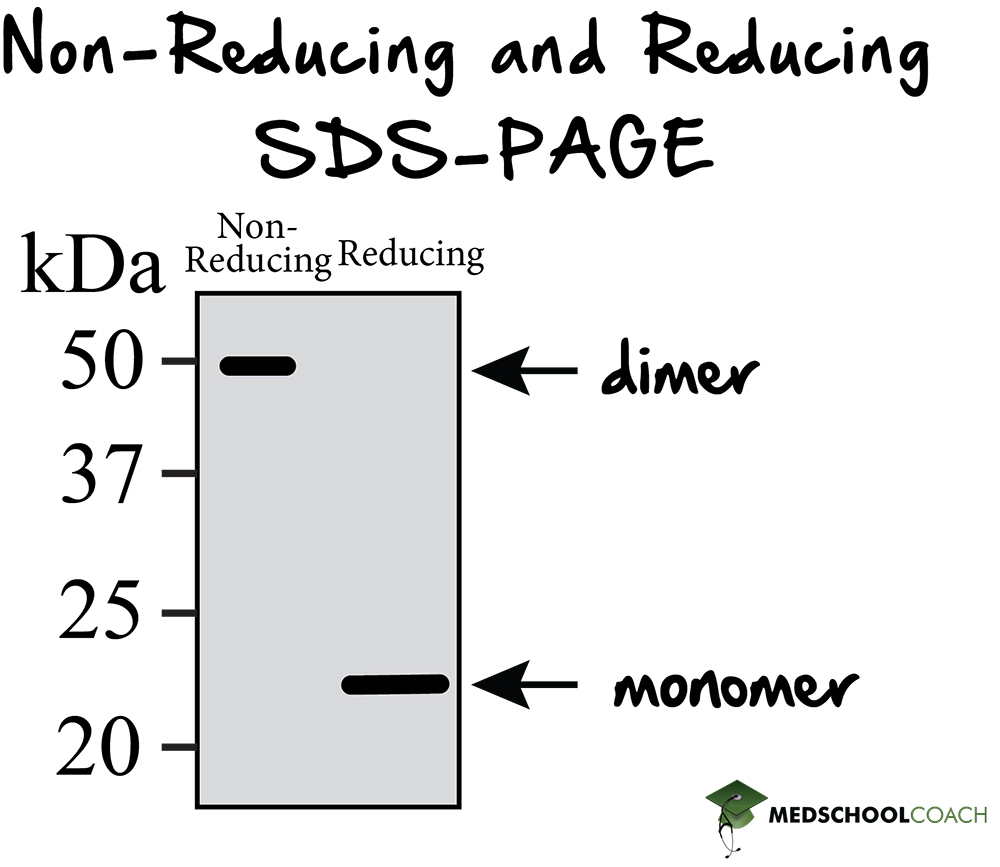Sds Page Reducing Conditions
Sds Page Reducing Conditions - By heating the sample under denaturing and reducing conditions, proteins become unfolded and. If we had a heterotrimer, we would only see one band. A reducing agent can break disulfide bonds, and for a majority of proteins, this will not.
A reducing agent can break disulfide bonds, and for a majority of proteins, this will not. By heating the sample under denaturing and reducing conditions, proteins become unfolded and. If we had a heterotrimer, we would only see one band.
A reducing agent can break disulfide bonds, and for a majority of proteins, this will not. By heating the sample under denaturing and reducing conditions, proteins become unfolded and. If we had a heterotrimer, we would only see one band.
SDSPAGE and western blot analysis of VHHFc seed extracts. About 32 µg
A reducing agent can break disulfide bonds, and for a majority of proteins, this will not. By heating the sample under denaturing and reducing conditions, proteins become unfolded and. If we had a heterotrimer, we would only see one band.
Reducing Sds Page And Non Reducing Sds Page Analysis Of Purified Hprl
If we had a heterotrimer, we would only see one band. A reducing agent can break disulfide bonds, and for a majority of proteins, this will not. By heating the sample under denaturing and reducing conditions, proteins become unfolded and.
Reducing SDSPAGE and nonreducing SDSPAGE analysis of purified hPRL
By heating the sample under denaturing and reducing conditions, proteins become unfolded and. A reducing agent can break disulfide bonds, and for a majority of proteins, this will not. If we had a heterotrimer, we would only see one band.
SDSPAGE of IgG and F(ab’) 2 preparations. Protein samples in SDS
By heating the sample under denaturing and reducing conditions, proteins become unfolded and. If we had a heterotrimer, we would only see one band. A reducing agent can break disulfide bonds, and for a majority of proteins, this will not.
SDSPAGE showing protein release (reducing conditions), cellular uptake
A reducing agent can break disulfide bonds, and for a majority of proteins, this will not. By heating the sample under denaturing and reducing conditions, proteins become unfolded and. If we had a heterotrimer, we would only see one band.
SDS PAGE tutorial Biochemistry Pinterest Chemistry
By heating the sample under denaturing and reducing conditions, proteins become unfolded and. A reducing agent can break disulfide bonds, and for a majority of proteins, this will not. If we had a heterotrimer, we would only see one band.
SDS (20)PAGE analysis under reducing conditions of monoclonal IgG
By heating the sample under denaturing and reducing conditions, proteins become unfolded and. If we had a heterotrimer, we would only see one band. A reducing agent can break disulfide bonds, and for a majority of proteins, this will not.
High Throughput Antibody Production ProteoGenix
A reducing agent can break disulfide bonds, and for a majority of proteins, this will not. If we had a heterotrimer, we would only see one band. By heating the sample under denaturing and reducing conditions, proteins become unfolded and.
SDSPAGE under reducing (A) and nonreducing conditions (B) of
A reducing agent can break disulfide bonds, and for a majority of proteins, this will not. By heating the sample under denaturing and reducing conditions, proteins become unfolded and. If we had a heterotrimer, we would only see one band.
Gel Electrophoresis, PAGE, SDS PAGE MCAT Biochemistry MedSchoolCoach
A reducing agent can break disulfide bonds, and for a majority of proteins, this will not. By heating the sample under denaturing and reducing conditions, proteins become unfolded and. If we had a heterotrimer, we would only see one band.
A Reducing Agent Can Break Disulfide Bonds, And For A Majority Of Proteins, This Will Not.
By heating the sample under denaturing and reducing conditions, proteins become unfolded and. If we had a heterotrimer, we would only see one band.








